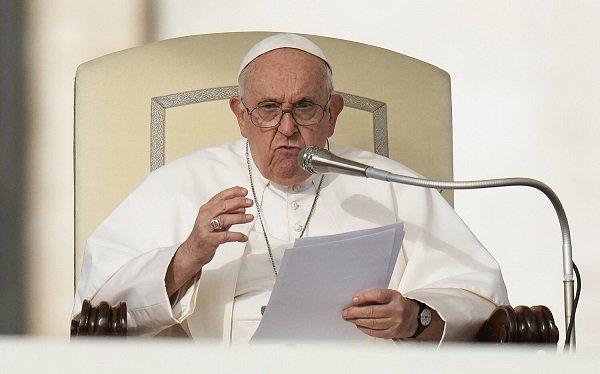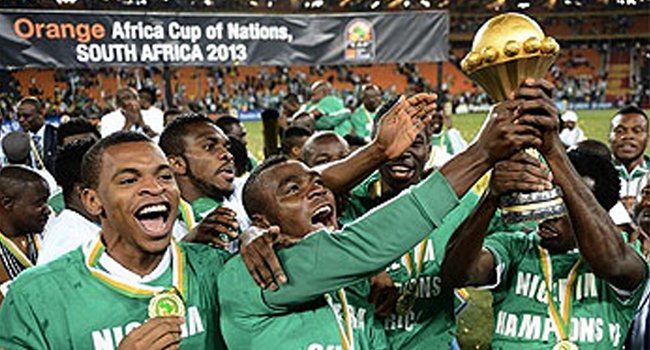
Priests can now bless same-sex couples, the Vatican announced yesterday.
The development makes the Roman Catholic Church more welcoming to lesbian, gay, bisexual, and transgender (L.G.B.T.Q.) members.
The Vatican had long said it could not bless same-sex couples because it would undermine the church doctrine that marriage is only between a man and a woman.
The new rule was issued in a declaration by the church’s office on doctrine and introduced by its prefect, Cardinal Víctor Manuel Fernández.
Cardinal Fernández emphasised that the new stance does not validate the status of same-sex couples in the eyes of the Catholic Church.
He said the declaration did not amend “the traditional doctrine of the church about marriage,” because it allowed no liturgical rite that could be confused with the sacrament of marriage.
Cardinal Fernández wrote: “It is precisely in this context that one can understand the possibility of blessing couples in irregular situations and same-sex couples without officially validating their status or changing in any way the Church’s perennial teaching on marriage.”
In his introduction to the declaration, which was signed and approved by Pope Francis, Cardinal Fernández nevertheless acknowledged that the broadening of the scope of who could receive blessings amounted to “a real development” and a “specific and innovative contribution to the pastoral meaning of blessings.”
He said the decision was “based on the pastoral vision of Pope Francis.”
“This new declaration opens the door to nonliturgical blessings for same-sex couples, something that had been previously off-limits for bishops, priests and deacons,” said the Rev. James Martin, a prominent advocate for L.G.B.T.Q. Catholics, according to The Times.
“Along with many priests, I will now be delighted to bless my friends in same-sex unions.”
There has been a burst of activity on the L.G.B.T.Q. issue in recent months from the office of the Doctrine of the Faith, run by Cardinal Fernández, especially after many advocates for L.G.B.T.Q.
In October, the Vatican released Francis’ private response over the summer to doubts from conservative cardinals about the possibility of blessing same-sex couples, a practice they absolutely opposed.
Francis instead suggested the blessings were a possibility, seemingly reversing a 2021 Vatican ruling that came down hard against the blessing of gay unions, arguing that God “cannot bless sin.”
While the pope then also clearly upheld the church position that marriage could exist only between a man and a woman, he said that priests should exercise “pastoral charity” when it came to requests for blessings.
The issue of blessing same-sex couples has exploded in recent years, especially in Germany, where priests have regularly offered blessings despite resistance from the Vatican.
The Vatican document points out that blessings, which are intended to evoke God’s presence in all facets of life, can be bestowed on people, objects of worship, places of work, and much else, and are aimed at giving glory and asking favour to God.
A church official said the blessings amounted to “a real development” that nevertheless did not amend “the traditional doctrine of the Church about marriage”.
In the Catholic Church, a blessing is a prayer or plea, usually delivered by a minister, asking for God to look favourably on the person or people being blessed.
The declaration represents a softening of tone from the Catholic Church, although not a change in position.
In 2021, the Pope said priests could not bless same-sex marriages because God cannot “bless sin”.
Pope Francis had suggested in October that he was open to having the Church bless same-sex couples.
Bishops in certain countries have previously allowed priests to bless same-sex couples, though the position of Church authorities remained unclear.
Cardinal Fernández, prefect of the Dicastery for the Doctrine of the Faith, explained that the declaration “offers a specific and innovative contribution to the pastoral meaning of blessings, permitting a broadening and enrichment of the classical understanding of blessings, which is closely linked to a liturgical perspective.”
The declaration says: “It is essential to grasp the Holy Father’s concern that these non-ritualised blessings never cease being simple gestures that provide an effective means of increasing trust in God on the part of the people who ask for them, careful that they should not become a liturgical or semi-liturgical act, similar to a sacrament.”
The declaration states: “One should neither provide for nor promote a ritual for the blessings of couples in an irregular situation.
“At the same time, one should not prevent or prohibit the Church’s closeness to people in every situation in which they might seek God’s help through a simple blessing.”
The document suggests: “In a brief prayer preceding this spontaneous blessing, the ordained minister could ask that the individuals have peace, health, a spirit of patience, dialogue, and mutual assistance—but also God’s light and strength to be able to fulfil his will completely.”
It insists, however, that “precisely to avoid any form of confusion or scandal, when the prayer of blessing is requested by a couple in an irregular situation, even though it is expressed outside the rites prescribed by the liturgical books, this blessing should never be imparted in concurrence with the ceremonies of a civil union, and not even in connection with them. Nor can it be performed with any clothing, gestures, or words that are proper to a wedding. The same applies when the blessing is requested by a same-sex couple.”
It suggests that such a blessing “may instead find its place in other contexts, such as a visit to a shrine, a meeting with a priest, a prayer recited in a group, or during a pilgrimage.”
The declaration emphasizes that with these blessings “there is no intention to legitimise anything, but rather to open one’s life to God, to ask for his help to live better, and also to invoke the Holy Spirit so that the values of the Gospel may be lived with greater faithfulness.”
It concludes that what has been said in the declaration regarding the blessings of same-sex couples should be sufficient “to guide the prudent and fatherly discernment of ordained ministers in this regard.”
The Vatican holds that marriage is an indissoluble union between man and woman. As a result, it has long opposed same-sex marriage.




